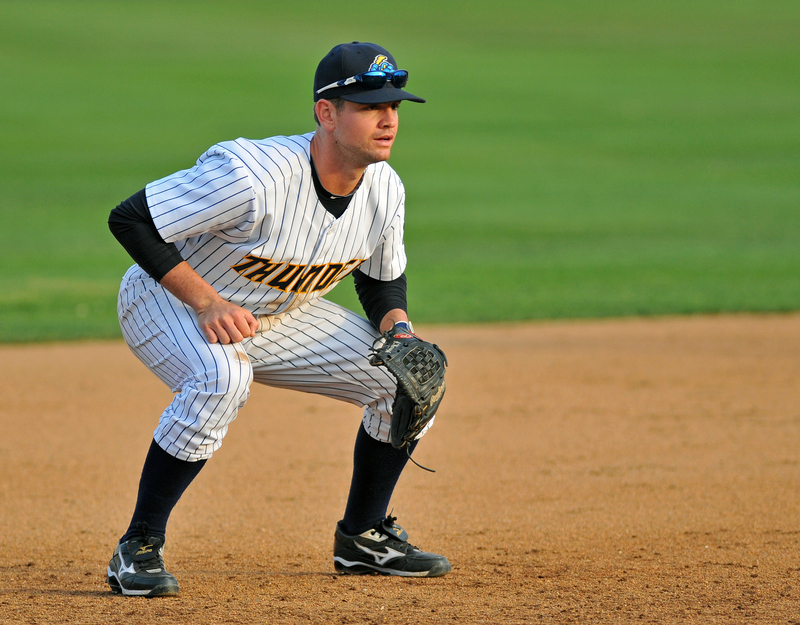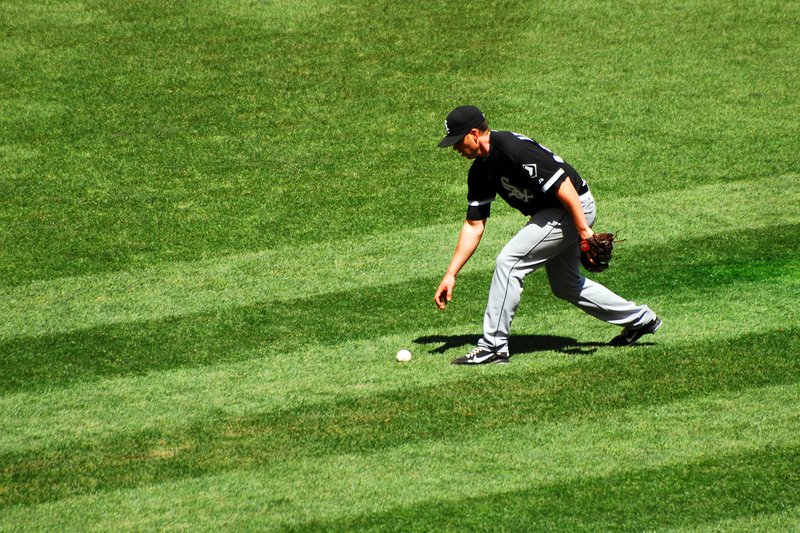Last updated on October 26th, 2023 at 08:57 am
A utility player (or utility man) in baseball and softball is someone who can play multiple defensive positions. These players can either start at one position during a game or move around to different areas on the field later. Having a utility player on your team opens up many possibilities for managers to utilize a unique defensive strategy during games.
So, why is having a utility man on your softball or baseball team so important? Are utility players good at hitting as well? Do they get the same credit and spotlight as other players in the media? Who has been some of the best utility players in MLB history?
Here is the complete breakdown of what a utility player is in softball and baseball.
Why is this Position Important?
Softball and baseball teams can only have so many players on their team for a game. For instance, Major League Baseball teams can only carry 26 players on their roster, a combination of starting pitchers, relievers, and hitters. In addition to that roster limit, some players can only play one position, like the catcher and backup catcher on a team.
It opens up more strategy when a team has a utility man who can play multiple infield or outfield positions (first base, second base, third base, shortstop, left field, right field, center field).
For instance, a player who can play both the infield and outfield can take over a different position later in the game if there is an injury or substitution without the manager needing to make two changes, further reducing their bench player number.
What is an Example of How Teams Use a Utility Player During a Game?
Let’s say that a team has a utility infielder on the bench who can play the entire infield. The game is in the seventh inning, and the team is up by several runs, so the coach wants to make a defensive substitution for a baseball player on the diamond. They can call the utility infielder off the bench to replace any of the infield positions that they want to give a bit of rest for the remainder of the game.
Another example of the importance of a utility player is someone who can come off the bench after an injury or move to a different position during a game. For example, let’s say that the third baseman receives an injury on a throw. A utility player can come off the bench to fill that spot. If the utility player is already playing second base and the team has a bench player who can only play second base, the coach can move the starting second baseman to third and then call up the bench player to play second. The coach has more room to work within the infield in that scenario since they have a utility player.
The truly best utility players can play the infield and outfield during games. These players are sometimes referred to as the fourth outfielder since there are three starting outfield positions. If an outfielder has an injury, the coach can move the utility player since they know they can handle that position.
How to Become a Utility Player?
You should practice playing at different baseball and softball positions to be a utility player. Whether you start in little league, high school, college, or minor league baseball, you should try playing multiple positions. Playing numerous positions can give you the experience to play them and increase your team value since you can play different roles.
What Makes a Good Utility Player?
A good utility player needs to be ready to substitute any number of positions at a moment’s notice. They must have multiple baseball gloves ready in their locker if they need to play first or third base. In addition, they should be walking around the dugout and keeping active just in case they need to enter the game. MLB players shouldn’t go into a game cold, so moving around keeps the body loose and ready for action.
Utility players also need strong baseball knowledge of the positions they can play. For example, a utility player who can be an emergency catcher needs to know the sequences for the pitchers. If they go into the game, they need to be ready to call signs, move the defense around, and interpret signals from the bench to relay to others.
Another excellent quality of a utility player is having good relationships with teammates. Some players on the team might work differently than others. As a utility player, you should know who you are working with within the infield or outfield and be able to adapt to your teammates on the field. For instance, if you are playing the outfield, you should know the defensive range of your teammates to understand how aggressive you should be on plays.
Are Utility Players Good at Hitting?
Utility players can be good hitters, but their skillset is more on the defensive side of things. That said, teams still look for the utility player to make an impact offensively, but their primary goal is on the defensive end.
Some of the best utility players have a great WAR because of the number of defensive positions they can play. Not only that, but they play those positions well and save runs for their team.
Conclusion: What is a Utility Player in Baseball and Softball
In summary, a utility player in baseball and softball is someone who can play multiple defensive positions for their team. Since they can play multiple defensive positions, they give their manager more options on how to play defense. Also, utility players can be some of the best players on your team when you factor in WAR.
Similar Posts:
What is Sign Stealing in Baseball
What Does Lob Mean in Baseball and Softball?
Differences Between Baseball and Softball
What is the Strike Zone in Baseball?
What Does BB Mean in Baseball?
How Does Scoring Work in Softball?
What Does the K Mean in Baseball?
Pinch Runner in Baseball and Softball
What Does WHIP Mean in Baseball?
What Does OPS Mean in Baseball?
What is the World Series in Baseball?
Greg Kristan, owner of The Stadium Reviews, LLC and TM Blast, LLC, brings his extensive experience visiting over half of the MLB ballparks, along with numerous MLS, NHL, NBA, and NFL venues, to provide in-depth coverage on the bag policy, food options, and parking. He has also been interviewed about his experiences on several sports podcasts.







